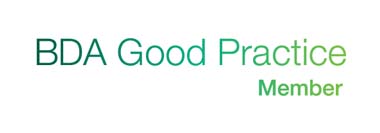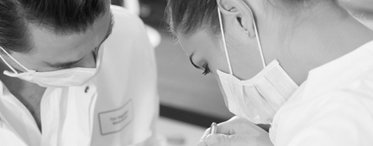
Oral Surgery under Local
We carry out a variety of oral surgical procedures and the most common procedures include the removal of teeth which are decayed, impacted or for orthodontic reasons. Local anaesthesia involves the administration of a local anaesthetic in the mouth to provide adequate analgesia for the safe, comfortable and painless removal of teeth. The patient is awake and alert at all times. This is an extremely safe procedure. There is no age restriction for this type of anaesthetic. The most common local anaesthetic used is Lignocaine. For anxious patients especially children, oral surgical procedures can be carried out with Relative Analgesia.
Oral Surgery under Sedation
We carry out a variety of oral surgical procedures and the most common procedures include the removal of teeth which are decayed, impacted or for orthodontic reasons.
If you are particularly nervous, anxious or have a phobia of dentistry, sedation is an excellent way to manage your anxieties. It is suitable for patients aged 18+, it involves the administration of an intravenous drug (usually a single drug such as midazolam), this is administered into a small vein on the back of the hand or in the crease of your arm. You feel very relaxed and we are then able to carry out your dental treatment. The drugs used for IV sedation produce either a partial or full memory loss (amnesia) for the period of time when the drug is first administered till when it wears off. Local anaesthetic is used in the mouth while you are sedated to ensure your dental treatment is carried out painlessly and for your post-operative comfort.
Oral Dentistry under Sedation
General dental treatment under IV sedation usually involves: the relief of dental pain the treatment of decayed teeth, gum (periodontal) treatment and extraction of rotten teeth. We are not able to carry out root canal treatments under IV sedation.
If you are particularly nervous, anxious or have a phobia of dentistry, sedation is an excellent way to manage your anxieties. It is suitable for patients aged 18+, it involves the administration of an intravenous drug (usually a single drug such as midazolam), this is administered into a small vein on the back of the hand or in the crease of your arm. You feel very relaxed and we are then able to carry out your dental treatment. The drugs used for IV sedation produce either a partial or full memory loss (amnesia), for the period of time when the drug is first administered until it wears off. Local anaesthetic is used in the mouth while you are sedated to ensure your dental treatment is carried out painlessly and for your post-operative comfort.
An account of IV sedation
“Basically it is a tiny pinch in your arm, in goes the stuff, nothing happens for several seconds and then you begin to feel light-headed for a few moments. before you know it time has flown by and everything is done. you feel fairly drowsy for a while afterwards and generally sleeping it off is a good idea.”
Relative Analgesia
Relative analgesia has been known by a number of names: laughing gas, inhalation sedation, happy gas, gas and air, Nitrous Oxide – Oxygen.
Nitrous Oxide is simply a gas which you can breathe in, it has no colour or smell and is non-irritant. In relative analgesia it is used in combination with Oxygen. It is simply breathed in and out through a nasal mask. The concentration of Nitrous Oxide and Oxygen is carefully titrated until the correct level of sedation is achieved.
Local anaesthetic is used in the mouth during the relative analgesia to ensure your dental treatment is carried out painlessly and for your post-operative comfort.
The patient will initially feel a sense of light headedness, followed by a tingling sensation, especially in the arms and legs, this followed by a ‘warm’ feeling and then a sense of well-being, euphoria or floating. You are able to speak and communicate with the dentist throughout the procedure. The dentist will be regularly asking you ‘how do you feel?’ If at any time you experience unpleasantness, you are able to inform the dentist and the concentrations can be adjusted.
This is a very safe procedure and suitable for children over the age of 5yrs, young adults and adults who are anxious about dentistry. Children under the age of 5yrs should be referred to a hospital setting as recommended by the NHS.
Most general dental procedures can be carried out using Relative Analgesia.
NHS Services
- Oral surgery under local
- Oral surgery under Sedation
- General Dentistry under Sedation
- Relative Analgesia




